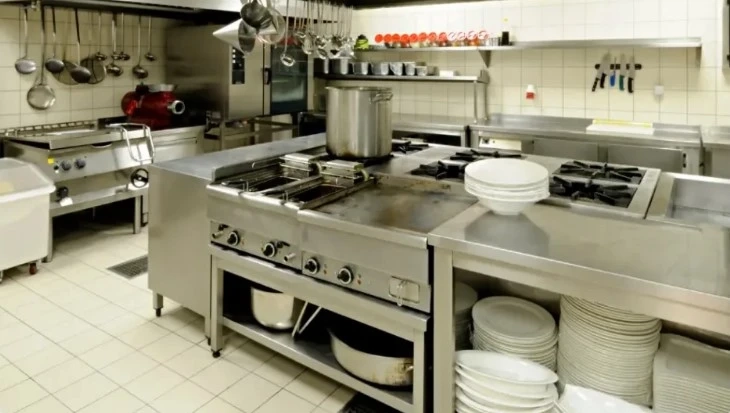Commercial kitchens rely heavily on smooth plumbing to keep things running. Whether it’s washing dishes, handling food waste, or maintaining sanitation standards, commercial kitchen plumbing upgradation is a must. But like all systems, plumbing networks wear out over time. Ignoring early warning signs can lead to costly repairs, lost business hours, or even health violations. If your kitchen has been around a while, it's worth checking for these red flags.
Signs You Need Commercial Kitchen Plumbing Services
1. Frequent Clogs and Slow Drainage
If your sinks or floor drains regularly clog or drain slowly, it’s a sign that grease, food particles, or scale buildup has narrowed your pipes. While occasional blockages are common, persistent ones signal deeper issues. Relying only on plungers or temporary fixes can backfire—full-scale pipe replacement might be needed to restore flow and sanitation.
2. Low Water Pressure
Commercial kitchens require strong, steady water pressure for dishwashing, cooking, and cleaning. If pressure is weakening, the cause could be corroded pipes, hidden leaks, or outdated fixtures. Older galvanized pipes, in particular, corrode from the inside, gradually choking water flow and compromising hygiene.
3. Visible Corrosion and Rust
If you spot rust stains around sinks or green-blue corrosion on pipe joints, your system may be nearing its end. Corroded pipes are more prone to leaks, burst lines, and contamination. Ignoring visual signs can result in water damage or pipe failure at the worst time—like during a dinner rush.
4. Foul Odors or Gurgling Sounds
Unsightly odors from drains or sinks usually indicate clogged food, grease clogs, or sewer gas leaks. Gurgling sounds can signal improper ventilation or clogged drainage lines. These problems not only impact staff comfort levels but can also be in violation of health codes if not corrected.
5. Leaks and Water Damage
Even tiny, repeated leaks around fittings or under sinks are a cause for alarm. Gradually, they can cause mold, buckled flooring, or electrical risks. A persistently leaking plumbing system—regardless of fixes—can require partial or complete replacement.
Conclusion
An aging or overworked plumbing system can quietly sabotage your commercial kitchen’s efficiency and safety. Spotting these signs early—like low pressure, odors, or visible rust—can save thousands in repairs and keep your business running smoothly. If you’re noticing multiple issues, it may be time for a full system evaluation and upgrade. Choosing commercial kitchen plumbing services in Burwood is the right way to avoid plumbing blunders.
Frequently Asked Questions (FAQs)
1. Why is my kitchen sink draining slowly or not at all?
Clogged drains are the number one offender—grease, food waste, oils, and starches accumulate over time in commercial kitchens. Precautionary measures include putting in strainers, scooping food into bins prior to washing, and making regular hydro-jetting or drain cleaning part of their routine. Regular grease-trap cleanings every month also prevent blockages and bad odors.
2. How do I prevent grease trap overflows and related odors?
Grease traps trap greases that solidify and get stuck in systems if not regularly emptied. Best practice is to have professional grease trap cleanings scheduled at least monthly—or more often for high-volume kitchens. Educate employees to dispose of greases in closed containers, not the drain, and check traps for accumulation before problems arise.
3. Why is my water pressure low in the kitchen?
Low water pressure can be caused by mineral buildup within pipes, undersized lines, clogged lines, or malfunctioning pressure regulators. To repair, drain pipes of sediment, check regulators and valves, and replace worn-out parts. For big operations, pipe size and ventilation should be commercially kitchen compliant.
4. How do I avoid backflow contamination into clean water supply?
Backflow occurs when contaminated water flows backward into drinkable lines—pose health risks. Install proper backflow prevention devices (or air gaps) on sinks and dishwashers. Annual testing and maintenance by licensed technicians should be scheduled to remain code-compliant and provide safe water.
5. What’s causing frequent toilet or floor drain backups?
Restaurant equipment commonly deals with paper towel clogs, sanitary item clogs, hair clogs, or kitchen waste clogs. Install drain covers, post placards asking for only toilet paper, and don't flush anything other than toilet paper. If backups continue, have the lines scoped and snaked or hydro-jetted. Upgrade to commercial toilets for more durable performance.



